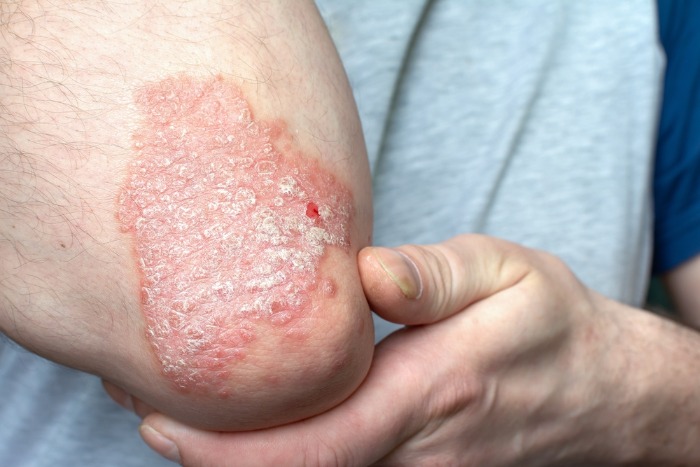Psoriasis

Psoriasis is a chronic autoimmune condition that causes skin cells to multiply rapidly, leading to the formation of thick, red, and scaly patches on the skin. It can occur anywhere on the body, but is most commonly seen on the scalp, elbows, knees, and lower back. Psoriasis can be painful, itchy, and uncomfortable, and can also affect a person’s emotional well-being and quality of life. While there is no cure for psoriasis, there are several treatment options available, including topical medications, light therapy, oral medications, and biologic drugs. Dermatologists are experts in the diagnosis and treatment of psoriasis and can help patients manage the condition and minimize its impact on their daily lives.
It is important to see a dermatologist if you suspect you may have psoriasis or if you have been diagnosed with psoriasis and are experiencing a flare-up. Dermatologists can provide a definitive diagnosis and recommend appropriate treatment options based on the severity of the condition and the patient’s overall health. They can also monitor the patient’s progress and adjust the treatment plan as needed. In addition, dermatologists can provide guidance on lifestyle changes that may help reduce psoriasis symptoms, such as maintaining a healthy weight, avoiding triggers like stress or alcohol, and avoiding skin injuries that can worsen the condition. If you are experiencing symptoms of psoriasis, it is important to seek medical attention promptly to receive a proper diagnosis and treatment.


